In Nepal, a radio show about topics “our textbooks might not cover”
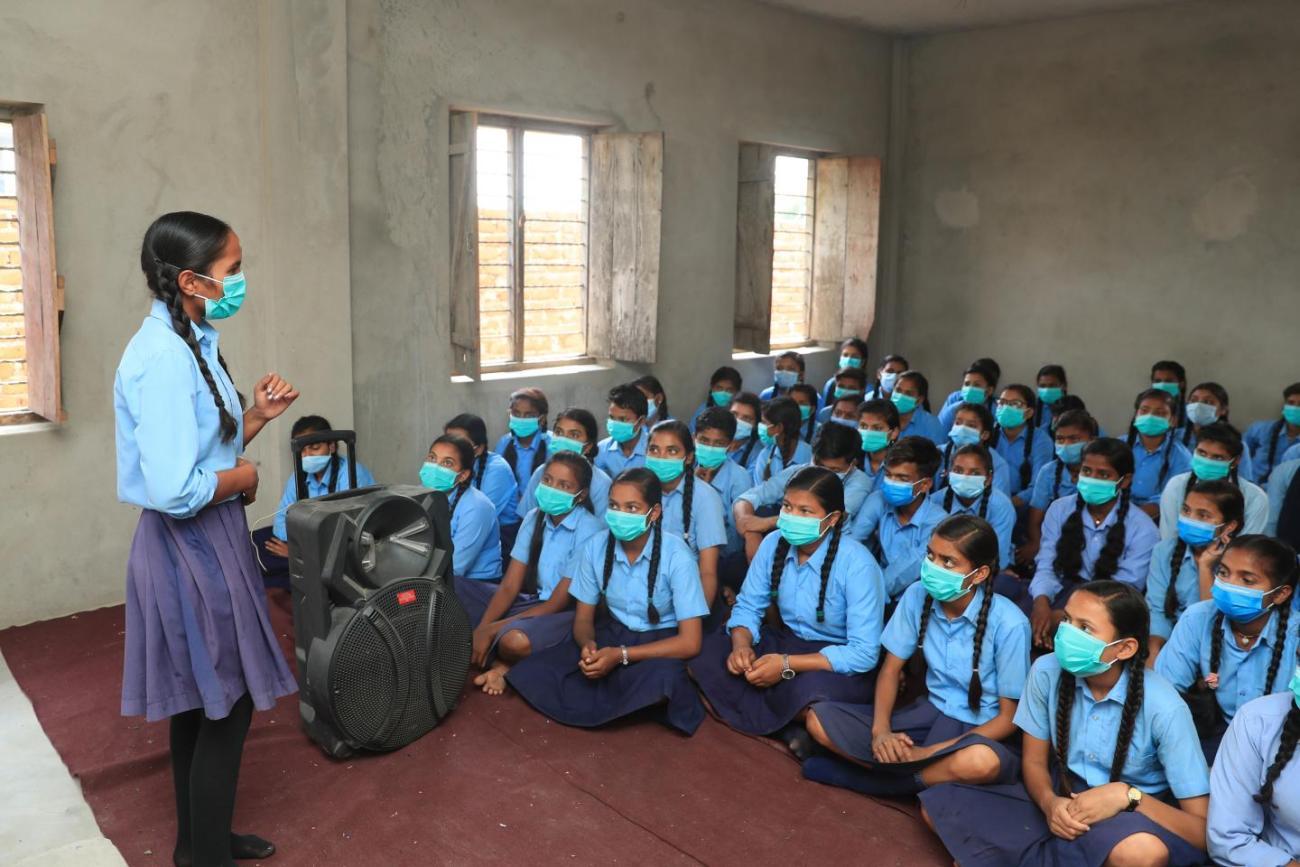

Kumkum Patel stands in front of a group of schoolmates and teachers gathered in a classroom in southern Nepal, telling them all a story she has heard. Beyond the story itself – a cautionary tale about choosing one’s friends wisely – it is Kumkum’s confident stance and clear voice that make an impression.
“I used to hate speaking in front of a big group,” the 16-year-old admits. “It’s only recently, because of practice during the radio sessions, that I have gotten more comfortable doing it.”
The “radio sessions” are school discussions about a popular weekly broadcast for adolescents called “Rupantaran,” meaning “transformation” in Nepalese. Episodes cover topics such as reproductive health, gender equality, nutrition, and communication, which are especially popular with girls. Conceived during the COVID-19 pandemic, when school was out, the show is lively and conversational.
Kumkum’s school is among the 120 selected schools that have weekly in-person Rupantaran discussion sessions. They’re great practice in voicing her opinions amongst her peers.
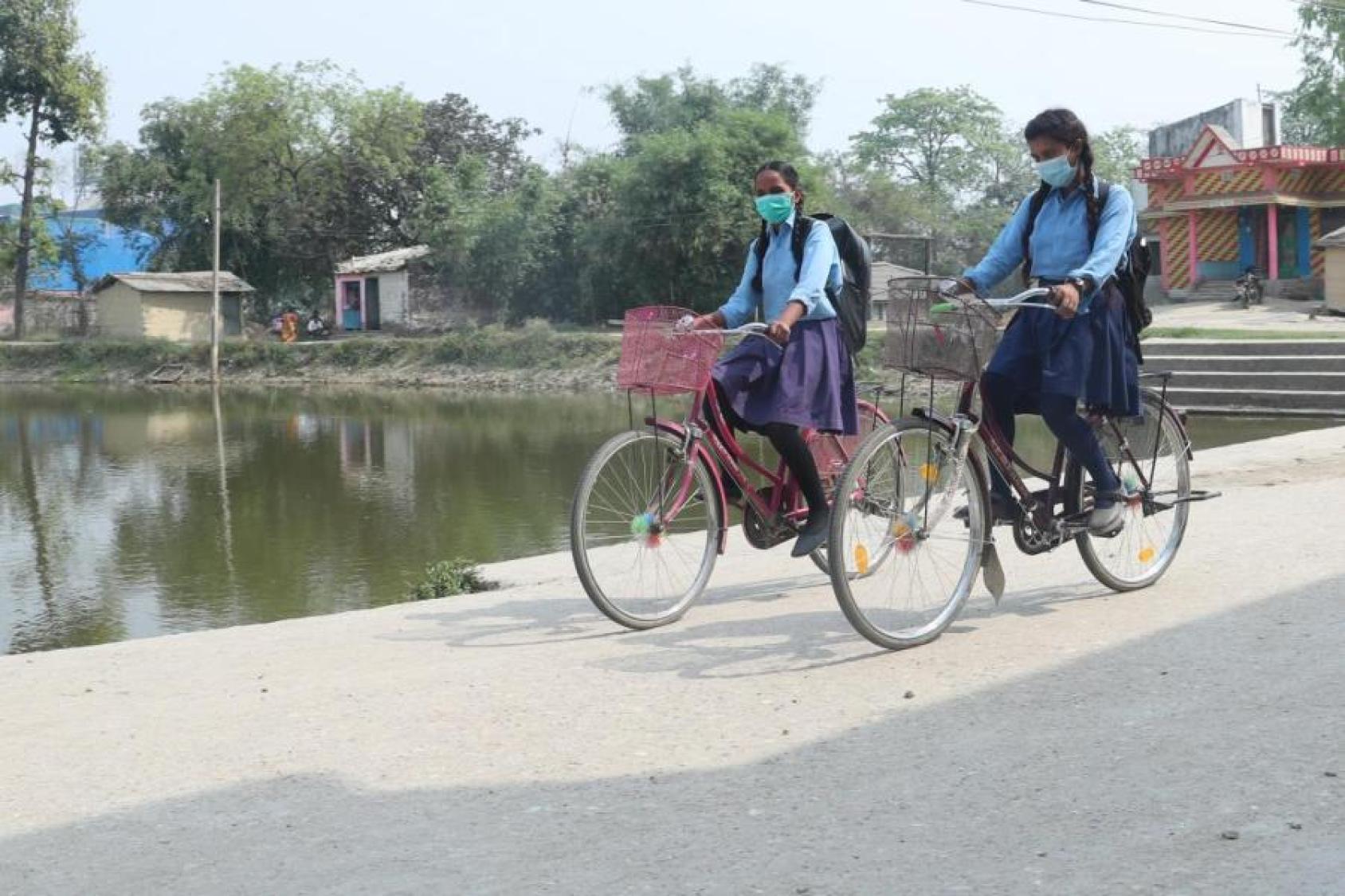
“I like that the show talks about topics that our school textbooks might not cover,” Kumkum says, citing the example of the most recent episode on young people and savings. “Being careful with money, to not spend on frivolous things, these tips are useful in our daily lives.”
Kumkum’s parents are both pleased at seeing their daughter so excited and determined to learn and grow.
Jadulal, Kumkum’s father, is proud of his daughter’s achievements in school and eager to support her in becoming independent. “She has loved school from the very first day we enrolled her, and always worked hard and done well.”
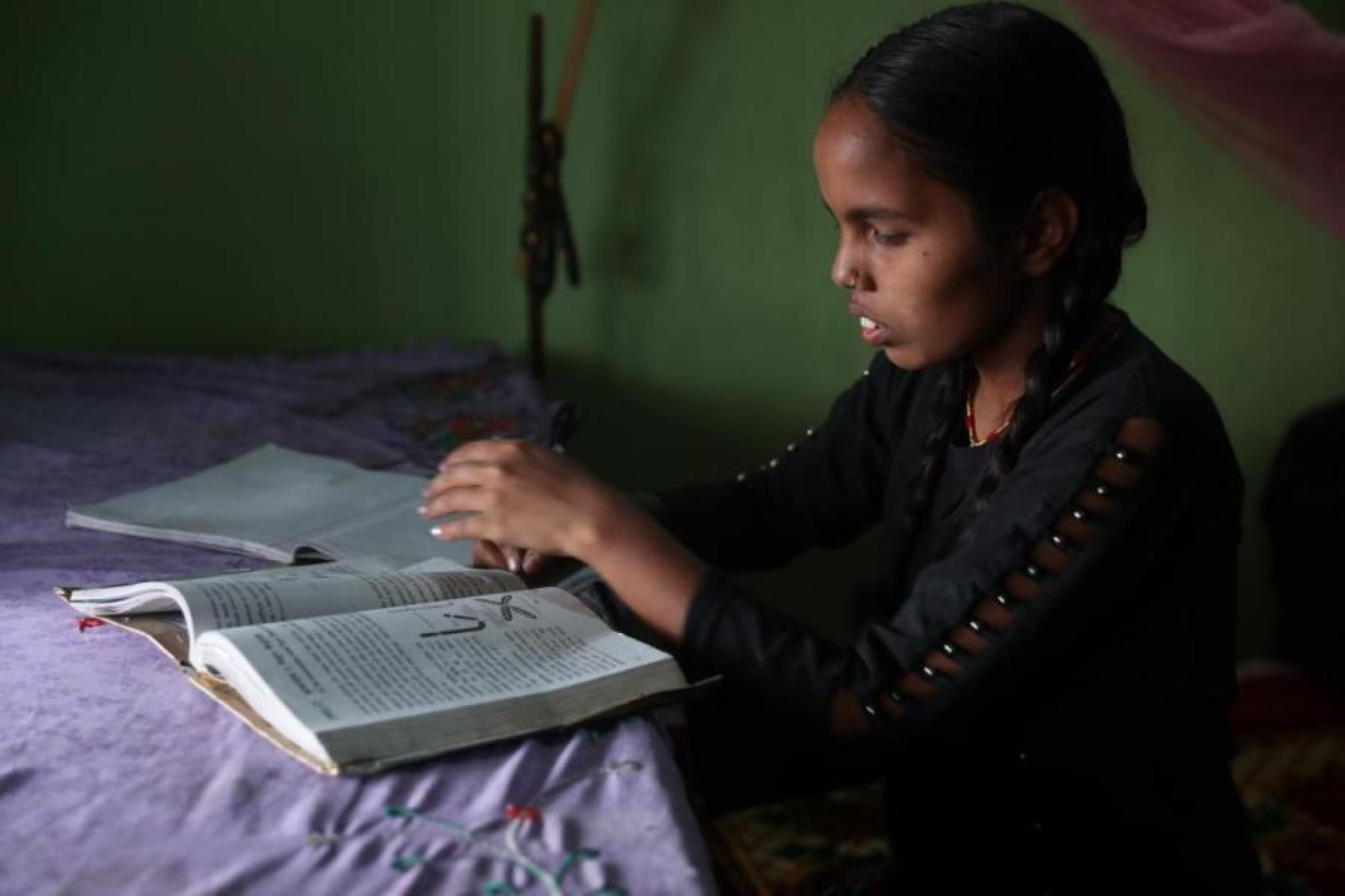
Meanwhile, he acknowledges that early marriage and the dowry system still prevail in their community, cutting children – especially girls – off from reaching their potential.
This sentiment is echoed by Kumkum's mother, Laxmi. She says the episodes on sexual and reproductive health were eye-opening, particularly in explaining the dangers of child marriage for young people.
“We didn’t have that awareness when it came to our older children,” she says. “But we know better now.”
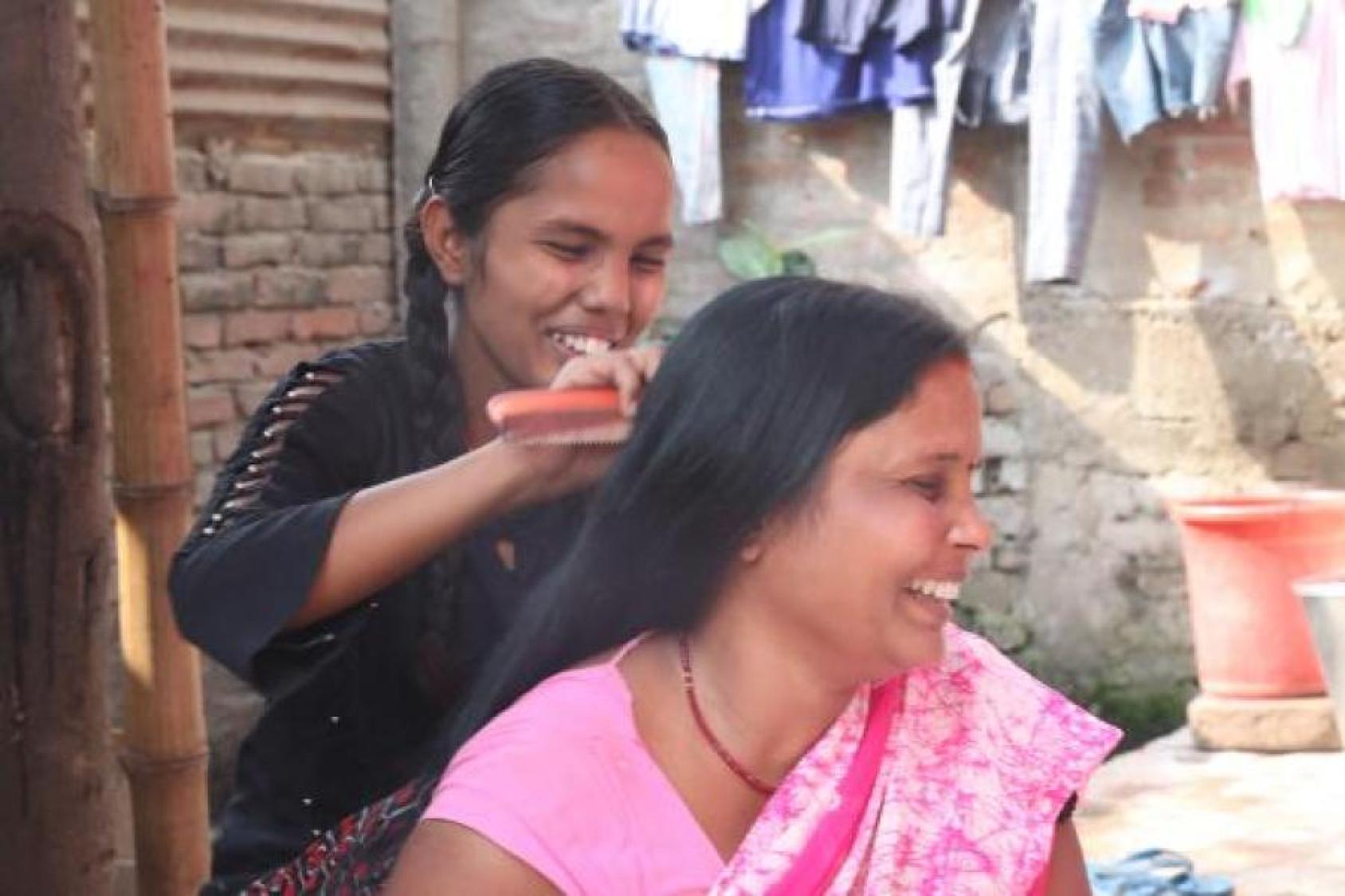
Sakila: “Anyone should be able to do anything they are good at”
“It shouldn’t be that if you’re a girl, you can only do certain things, and if you’re a boy, you have to do other things. Anyone should be able to do anything they are good at."
That is 13-year-old Sakila Khatun voicing her thoughts during a discussion with a group of her schoolmates about a recent episode on gender equality.
For Sakila, these focused interactions with her peers help to better digest what she has heard on the show. “It always makes things clearer when you get to talk about the things you’ve learned,” she says.
Sakila recently got a chance to visit the studio to record a song she had written about the ills of the dowry system, and says she loves every minute of the session. “I thought I would get nervous, but I didn’t,” she says excitedly. “I’ve told all my family, friends and neighbours to listen for my part when the episode airs. I hope they like it.”
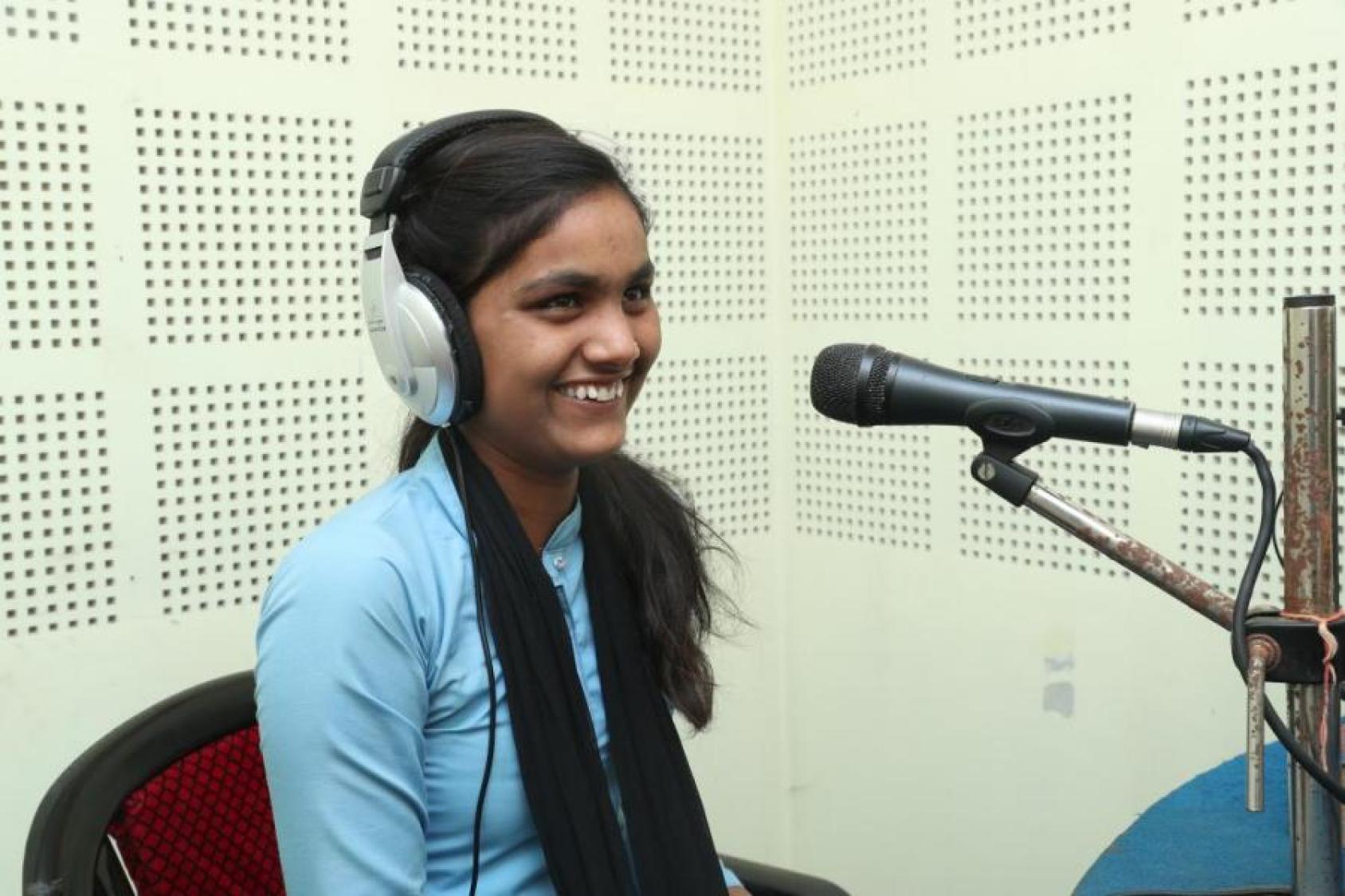
Fatima: “I wish I hadn’t rushed to marry off my children”
Sakila’s mother, Fatima, also listens to the radio show. She says it teaches her about being a better friend to her children.
“When you’re raising children, you forget what it was like to be a child yourself, and what they go through,” Fatima says. “I realized I needed to support them more.”
The episodes on child marriage, and subsequent discussions with Sakila, was another awakening for Fatima, who was herself married “so young I can barely remember the day,” and whose elder daughters and sons were also married at a young age. Nepal has one of the highest rates of child marriage in all of Asia — for both girls and boys — and the problem is particularly persistent in conservative communities.
“You’re just not ready in your body or mind to become someone’s wife, someone’s daughter-in-law, at that age,” Fatima says now. “I wish I hadn’t rushed to marry off my children.”
Sakila’s father Nazir has had a similar realization. “I want my daughter to stand on her own two feet and feel that she has us to support her in what she wants to do with her life,” he says.
And what is it that their daughter Sakila wishes to do?
“It changes often, but for now I want to become a police officer,” she says. “People respect you, and you have the power to take action against those who break the law. I want to do that.”
This story draws from two previously published stories by UNCT in Nepal. Editorial support provided by Lyla Peng and Paul VanDeCarr of the Development Coordination Office. Learn more about the work of the UN in Nepal. To learn more about the results of our work in this area and beyond, please read the UNSDG Chair Report on DCO.













